I wanted to start this essay with a joke. I had a whole bit about a hippo, a psychedelic mushroom, and a stand-up comic walking into a bar, but I’ll spare you the details. I’m no comic. Sure, I can try to spin a joke out of a theatre festival and convening, but I think that’s better left to the experts. Adrienne Dawes, Franky D. Gonzalez, Milta Ortiz, Erlina Ortiz—those folks know how to tell a joke or two or twenty. As I learned at the 2022 Latinx Theatre Commons Comedy Carnaval from 9-11 June 2022 in Denver, Colorado, Latinx artists are no strangers to comedy. If the Comedy Carnaval is any indication, Latinx comedy is alive and well. We’re in good hands, folks.
As theatre communities continue to learn how to readjust to life in the present moment, we are not post-pandemic. Rather, we are learning to live with COVID-19 and learning how to make theatre in this new reality. What are audiences willing to see right now? What do audiences need out of theatre? How can Latinx artists respond to these needs? Where does culturally-specific comedy fit into this equation? And what does a weekend in Denver have to do with any of this?
…Y Entonces la Pandemia
Since its first convening in Boston in 2013, the Latinx Theatre Commons (LTC) has meticulously begun building a renewed Latinx theatre movement throughout the Américas, creating momentum around nuanced ways to update the narrative of the American theatre to be more inclusive of Latinx communities. What began as a set of ideas and dreams soon crystalized into reality due to the volunteer labor of the Steering Committee and the energy of the concentric circles of participants enabled by the commons-based approach. If you have attended any LTC convening or engaged with Latinx-focused work on HowlRound—to name a few ways—you are part of the commons. There is no formal membership. Rather, the commons is about sharing values, space, resources, and energy. With this commons-based approach, the LTC moved the needle of the American theatre.
When the LTC met in Miami in July 2019, the movement was beginning to see tangible results of this work. By the end of 2019, the LTC had produced eleven public-facing convenings; steering committee members had incubated critical initiatives such as The Fornés Institute; scholars began publishing books and documenting the movement; plays from the Encuentros and Carnavals were regularly being produced across the country; and, of course, Latinx theatremakers were increasing their power within the theatre industry.
And then 2020 happened.
The COVID-19 pandemic may have derailed the the LTC’s momentum. The movement may have been stalled. Wheels may have spun. But the LTC did not disappear. Rather, just like individual theatremakers, we have all had to readjust and reimagine what we want our communities to look like.
If you have attended any LTC convening or engaged with Latinx-focused work on HowlRound—to name a few ways—you are part of the commons.
When Amelia Acosta Powell pitched the idea to the LTC Steering Committee in 2018, there was no way to predict how our world would change. The Comedy Carnaval was already being planned before the insurrection at the United States Capitol on 6 January 2021 or the massacre at an elementary school in Uvalde, Texas. Comedy was the chosen genre long before George Floyd and COVID-19 were part of our everyday vernacular. Put simply, our lives have been forever altered by the events of the last few years. Do we not all need to take a collective movement of laughter together after the tumultuous past few years we have had? Is comedy really the best medicine?
Nuestro Teatro Es Su Teatro
As a hybrid event, the Comedy Carnaval married the successes of the Carnaval of New Latinx Work (2015, 2018) with something Latinx theatremakers do quite well—comedy. Celebrating its fiftieth anniversary of making Chicanx theatre in Denver, Su Teatro hosted the event and welcomed conveners to their space just as their name signals. “Your Theatre” soon became “Our Theatre.”
The convening featured a wide variety of content and form. There were readings of new full-length plays by Franky D. Gonzalez (Escobar’s Hippo), W. Fran Astorga (Exhaustion: Dancin’ Trees in the Ravine, a Psychedelic Comedia), and Erlina Ortiz (La Egoista). Other sessions highlighted short work such as Darrel Alejandro Holnes’ short film Marimacha, CARPA San Diego’s La Carpa de la frontera, and Tus Tías’ The Invocation of Selena. A Friday night solo performance evening was hosted at Raices Brewery featuring work by Cristina Fernandez, Jess Martínez, Milta Ortiz, Donelle Prado, R. Réal Vargas Alanis, and Katie Ventura. The weekend also featured two full productions: Octavio Solis’ Quixote Nuevo at Denver Center for the Performing Arts (DCPA) and Chicanos Sing the Blues at Su Teatro. And, of course, there were numerous other opportunities to connect with like-minded artists and unpack the power that comedy holds to transform communities.
During the opening ceremony, LTC producer Jacqueline Flores noted, “The commons is for everyone.” Event champion Amelia Acosta Powell reiterated this feeling, noting how welcomed she felt at the 2015 Carnaval, which spurred her to become involved in the movement. By the time Su Teatro artistic director Tony Garcia took the stage to welcome us to Denver and to Su Teatro, it was clear that sharing space together was going to be the driving force behind the convening. Oh, and comedy. Lots of comedy.
Now, let me tell you, Amelia Acosta Powell is funny. Like really funny. And, as she told us, there is power in making a joke. Likewise, there is power in comedic Latinx theatre. Noting how stereotypes of Latinx oppression abound when Predominantly White Institutions (PWIs) produce Latinx work, Acosta Powell adamantly declared, “I am over it.” I couldn’t agree more. It’s time to laugh. It’s time to see the humanity in Latine communities. It’s time to see the stories that have systematically been left off stages across the United States.


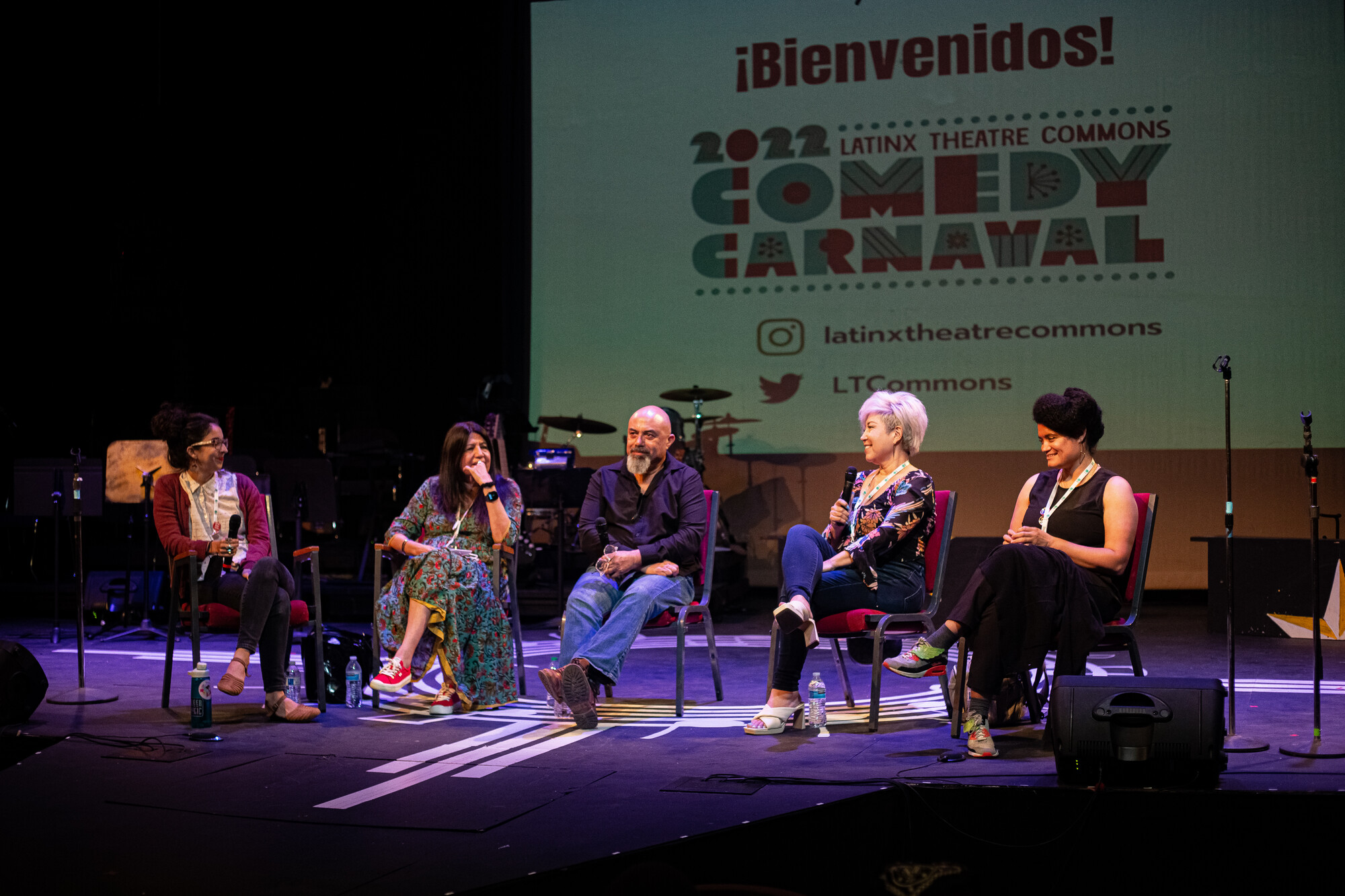
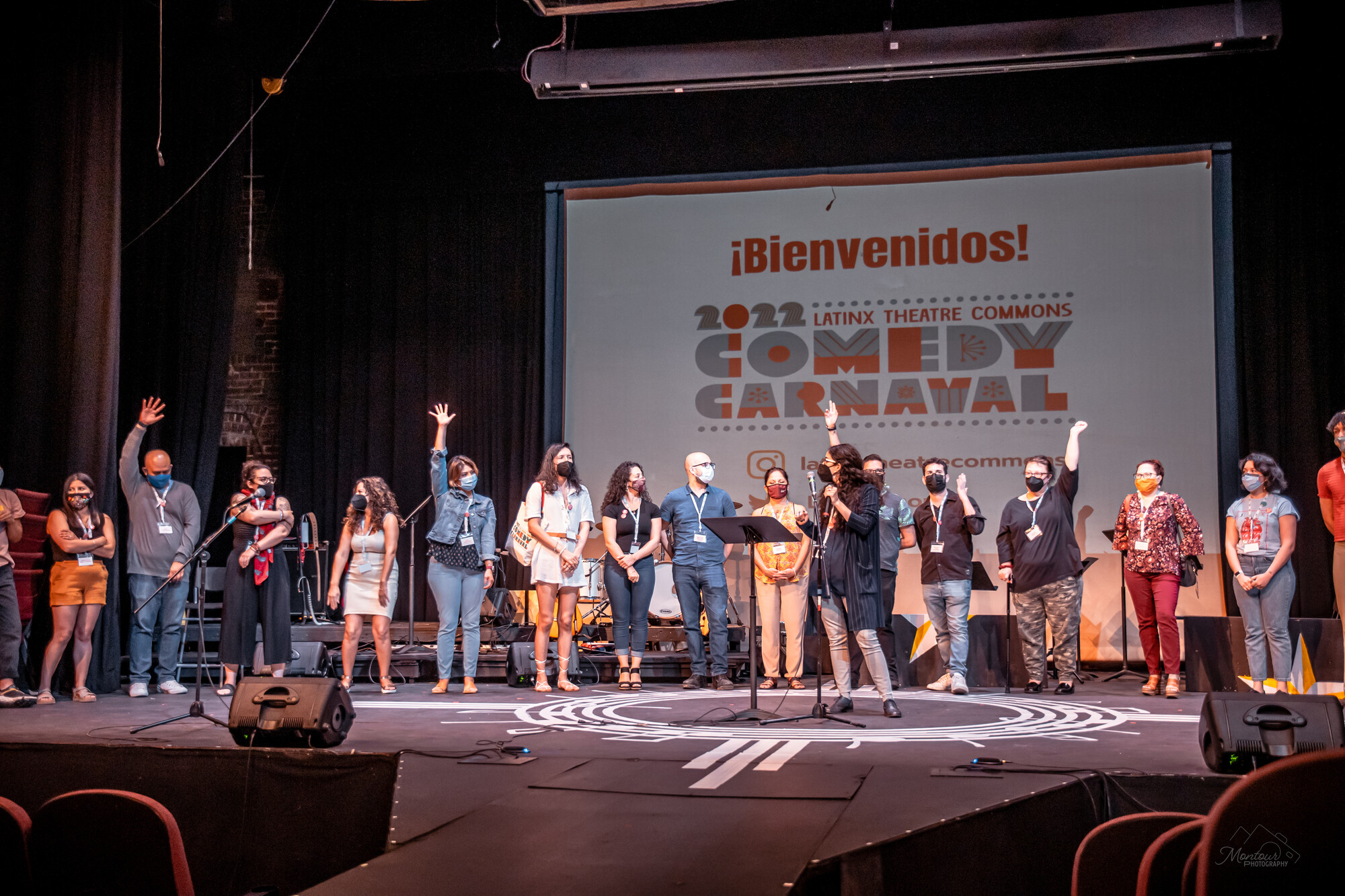
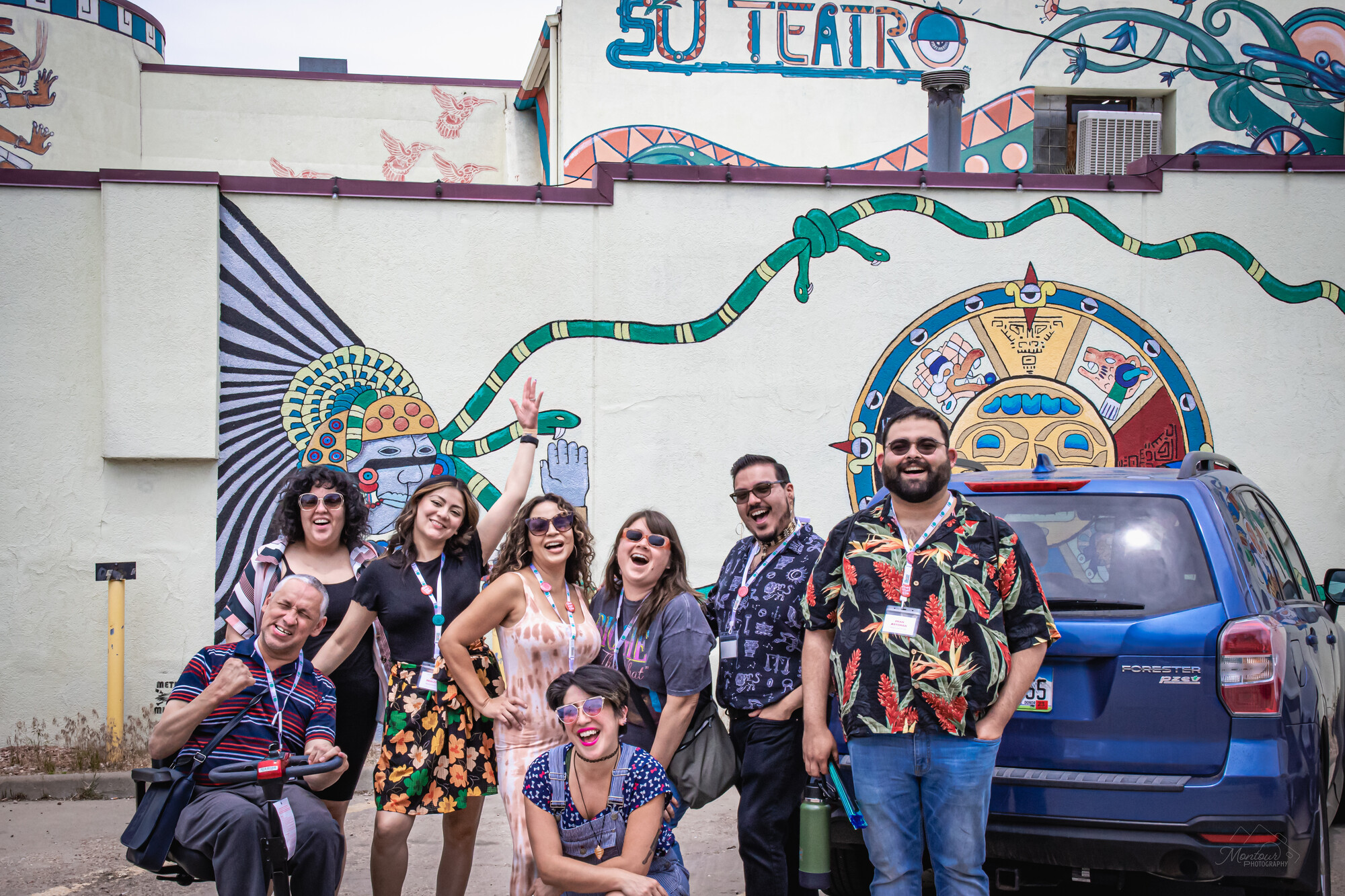


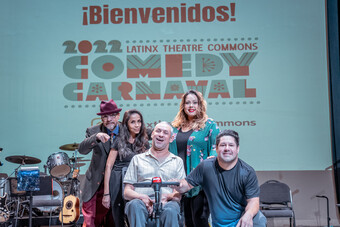

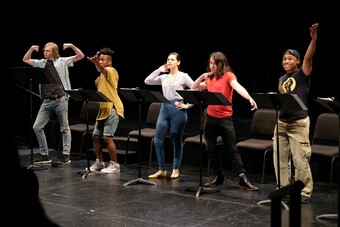

Comments
The article is just the start of the conversation—we want to know what you think about this subject, too! HowlRound is a space for knowledge-sharing, and we welcome spirited, thoughtful, and on-topic dialogue. Find our full comments policy here